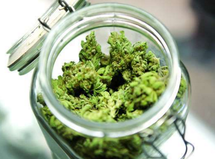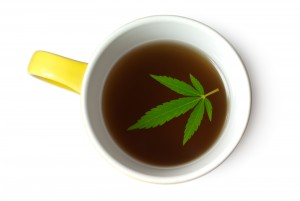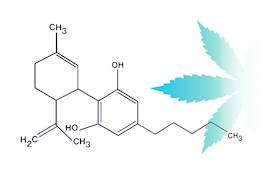|
By Christopher Lindquist & Jean Talleyrand
Edibles are food items made with cannabis or infused with cannabis oils or butter. They come in brownies, cookies, chews, gummies, candies, chocolates, butter, and beverages. Many cannabis patients choose to medicate with edibles. Some prefer ingesting cannabis rather than smoking; others prefer edibles because eating part of a cookie is more discreet than lighting up a joint or bowl. Some like the difference in effects. Edibles are a great option to administer medicine, but it’s important to know that the body responds differently to each mode of administration. Consider these factors when taking edibles as opposed to smoking cannabis: 1) The effects of ingesting a cannabis infused edible takes longer to begin, 2) The effects can be stronger and more intense, and, 3) The effects can last longer. The differences derive from how the body responds to cannabis when it is smoked as opposed to when it is ingested as an edible. When smoking, THCA (non-psychoactive cannabinoid present in fresh bud) is immediately converted to THC when it is lit. This process is called decarboxylation: (removing the (A) carboxylic acid from THC). The THC is then absorbed in the smoke by the exposed blood vessels of the lungs. The effects of a puff can happen within minutes, even seconds. Both smoking and taking edibles involve decarboxylation. Edibles often have a manufacturing process when heat is applied with edibles before they are baked. The effects of eating a cannabis infused edible take approximately 30-40 minutes to begin. This is because the medicine takes time to travel through the digestion process before entering the bloodstream. The edible enters the stomach, is absorbed by the lining of the intestine, and then is shuttled to the liver where it’s metabolized. When metabolizing an ingested edible, the liver converts THC to 11-Hydroxy-THC (11-OH-THC), which has greater affinity for the cannabinoid receptors and produces stronger effects. This conversion by the liver of THC to 11-OH THC creates a stronger effect that can last 6-8 hours, as opposed to 2-3 when smoking. When making an edible, cannabis flower is usually heated to about 220º F. This decarboxylates the THCA to THC. The decarboxylation produces the psychoactive “high”. The process of heating cannabis is not necessary. THCA reduces pain and doesn't create a “high”. As patients report the desire to not get “high” when using cannabis, more and more products are being created that skip the decarboxylation process. As well, CBD, an important molecule in the cannabis plant, is sometimes used instead of THC in order to reduce the high and still produce medicinal effects. Baked goods are a popular conduit for cannabis because most of them use an oil or butter, and THC and CBD are soluble in fat. The molecules dissolve well in fat and are evenly distributed throughout the product. Some edibles are mostly sugar based. Unless careful attention is put into dissolving the THC and CBD, the molecules clump and produce unpredictable effects. One product or portion can be much stronger than another. This is often seen in candy, lollipops, and sodas. We highly recommend patience when dosing with an edible. The longer wait can make a person anxious to feel the effects. And when testing the waters, we strongly recommend microdosing: the act of taking a small amount of medicine at first - gauge the effects - and next time, slightly increasing or decreasing the dosage amount to arrive at the best, most effective dose. Microdosing is also important with an edible because - once eaten, it’s difficult to “go back”. It is usually a good idea to wait 4-6 hours to re-dose. With smoking, you can microdose as you go. Some people prefer to smoke because it‘s inherently easier to gauge within minutes from puff to puff. We suggest finding a quality edible that is as consistent as possible. Read reviews and ask questions of your dispensary. MediCann will soon be testing, reviewing, and providing information that helps point patients in the right direction for finding medicine that works best for them. Please be responsible and store cannabis infused edibles out of reach of children. Also, store in cool, dark places; heat and sunlight can compromise cannabinoids and terpenes. |
AuthorJean Talleyrand, M.D., Archives
September 2023
Categories |
Mailing Address: MediCann 1336 Willard Street, C • San Francisco, CA 94117
Important Disclaimer!
The information contained in this site does not intend to replace any medical advice or care by a trained physician.
Any use of this information is solely the the responsibility of the user.
Important Disclaimer!
The information contained in this site does not intend to replace any medical advice or care by a trained physician.
Any use of this information is solely the the responsibility of the user.
© COPYRIGHT 2015. ALL RIGHTS RESERVED.

 RSS Feed
RSS Feed


